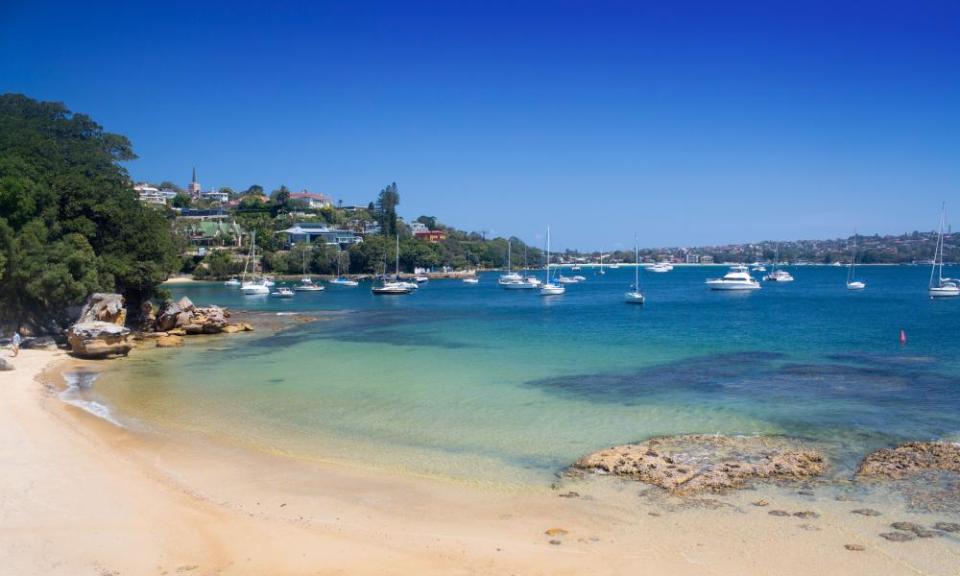Facebook group for Sydney suburb of Rose Bay shut down over defamation threats

A popular Facebook group for residents of the harbourside Sydney suburb of Rose Bay has been shut down after defamation threats were made against the administrator by the administrator of a rival Facebook group.
Bianca Havas started the Rose Bay Community – Official Group in her spare time seven years ago, between working full time and parenting. Over time the group grew to more than 5,500 members, mainly women, sharing information about events in the suburb. But Havas agreed to shut down the group after an acrimonious dispute with the administrator of a splinter group that led to defamation threats.
“When the page has worked at its best, it has connected the community, reunited people with lost pets and items, empowered locals to share relevant information about events, developments and supported local businesses and services in the area,” Havas said on the group this week.
“When it hasn’t worked so well has been when it has been used as a platform for personal attacks, arguments, and antagonism.”
Havas received a concerns notice for defamation from Bruce Goldberg, a voice-over artist who is the administrator of the rival Rose Bay Community – Original And Official, Ad Free group, which has more than 2,800 members.
Goldberg had made legal threats related to comments about him made in the original group, and has launched action against at least one of the members, Alice Voigt, alleging he has been defamed. The case will be heard in February.
Voigt has set up a GoFundMe page to raise money for her defence.
Havas received the concerns notice from Goldberg in August, shortly after the NSW supreme court ruled that Fairfax Media, Sky News, and News Corp were liable for the comments posted by other people about the Indigenous teenager Dylan Voller in Facebook posts on their page that linked to stories about him.
The landmark decision meant the administrators of Facebook pages or groups could be found liable for what other people post on those pages. An appeal by the three media companies against the ruling is due to be heard in December.
Havas said in the post announcing the page’s closure that she had already accrued close to $9,000 in legal costs to respond to the threats, and did not want to take the case to court. Havas told the group she would shut down the page from next Tuesday, and had agreed to not start another Rose Bay-related group.
“I am not allowed to disclose any other terms of my settlement with Bruce Goldberg because those other terms are confidential,” she said.
In a separate post she apologised to Goldberg for comments made by Voigt.
Shortly after the Guardian contacted Goldberg about the dispute, Havas posted on the group page that she had received more threats, and had been told to shut down the page on Thursday night. All but nine of the members had been removed from the group by the administrators as of Friday morning.
Havas urged members to write to MPs to protest that the Voller precedent was shutting down community voices.
“The new legal precedent means that anyone could now be considered a publisher and be liable for public comments others make on their page, or could at least be exposed to a legal claim that is very expensive to defend,” she said.
Several members expressed anger at the page being shut down and said it was a “huge loss”.
Goldberg did not respond to specific questions about the case.
In comments on the page two years ago, seen by the Guardian, Goldberg had told Havas to relinquish control of the group, after she accused him of “disrespectful and antagonistic behaviour”, and alleged his comments were making it unsafe for locals to share their views.
Goldberg replied that Havas had allowed “continuous spamming” on the page, and he had not been disrespectful.
“I have the legal know-how and the finances to drag you through and send you to the wall. It’s your choice,” he said.
This week the attorney general, Christian Porter, told radio 6PR changes to be announced next week would make it more difficult for people to sue over neighbourhood disputes.
“Now, there’s a balance there to be struck between people having the right to defend their reputation, but not clogging up the courts with stuff where there isn’t any actual, realistic, quantifiable damage to a reputation done simply because something was said in a neighbourhood dispute which was mean-spirited amongst neighbours,” he said.
The government will also be consulting on changes that would address the Voller decision. Porter told the National Press Club on Wednesday that Facebook and Twitter should be held to the same liability as newspapers for what is posted on their platforms.
“My own view is that these online platforms should be held to essentially the same standards as other publishers but that how this should occur requires a sensible measured approach to reform taking into account the differences in the volume of material hosted between Twitter or Facebook and a traditional newspaper for instance,” he said.
“But what is clear is the playing field is not at all fair at the moment.”
A spokesman for Facebook declined to comment on the Rose Bay case.

 Yahoo Finance
Yahoo Finance 